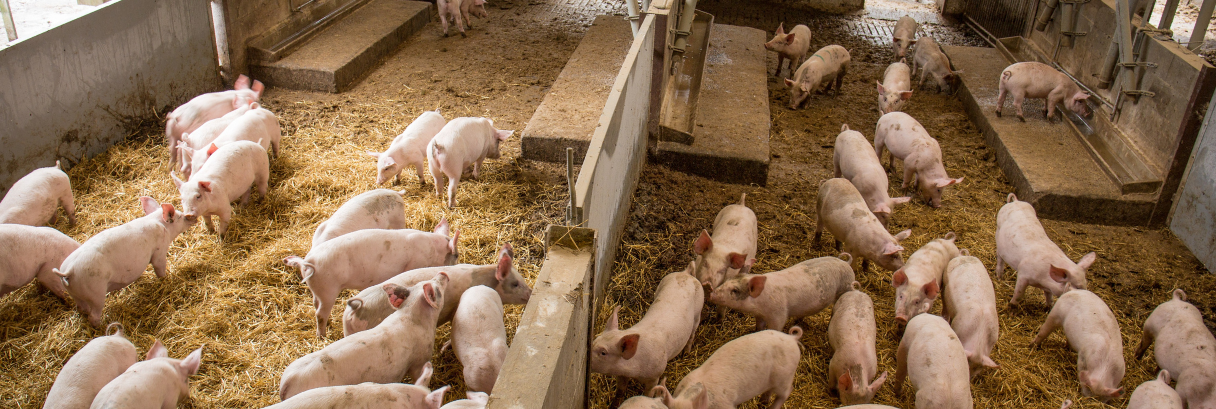Collaboration secures healthier herds and safer food
A united effort between Danish farmers and authorities is setting new standards in animal health. Through the National SPF Programme, Denmark tackles pig diseases with transparency and shared responsibility – protecting both animals and global food safety.
Healthy animals are the foundation of safe food. Across the world, livestock diseases challenge food safety, animal welfare and climate efficiency. When pigs fall ill, production drops, mortality rises and resources are wasted – a form of food loss before it even reaches the consumer. One of the biggest threats in pig farming has been Porcine Reproductive and Respiratory Syndrome (PRRS), a highly contagious virus that can spread through the air or between farms. Infected herds require more treatment and often more antibiotics, which undermines both sustainability and trust in food safety. For years, many farmers hesitated to invest in longterm solutions, fearing that even cleaned herds would be quickly reinfected.
A national system built on partnership and prevention
Denmark has addressed this challenge through developing a unique, collaborative system to tackle PRRS and other porcine pathogens: The National SPF (Specific Pathogen Free) Programme. The initiative was driven by the farmers, represented by the Danish Agriculture and Food Council, working closely with the Danish Veterinary, Food, Agriculture and Fisheries Agency (Styrelsen for Fødevarer, Landbrug og Fiskeri) to implement new regulations and biosecurity standards.
Under the SPF system, herds are categorised and monitored based on their health status. A new regulation requires that all pig herds – not only those already in the SPF network – are monitored for PRRS on an ongoing basis. Transparent reporting means every herd’s health status is publicly available, allowing producers and buyers to make informed decisions. At the heart of the SPF system is also biosecurity. Farms are designed with entry rooms where staff change clothes, wash hands and disinfect footwear, ensuring that no infection is carried inside.
Crucially, this is not a topdown initiative. Farmers work together in local clusters to plan coordinated eradication efforts and share costs. By taking ownership of the process, they have built a strong, producerdriven model supported by clear public guidelines.
This joint approach has delivered impressive results. The number of PRRSfree herds that become infected each year has fallen from 7% in 2021 to just 3% in 2024
Clear results for pigs, producers and the planet
This joint approach has delivered impressive results. The number of PRRSfree herds that become infected each year has fallen from 7% in 2021 to just 3% in 2024. Healthier pigs mean more efficient production, reduced antibiotic use and higher welfare standards. International buyers now actively use the Danish system to source pigs from herds with verified high health status, strengthening Denmark’s reputation as a supplier of safe, sustainable food products.
Through close collaboration between farmers and authorities, Denmark has created a system that protects animal health, prevents food loss and sets new benchmarks for food safety – demonstrating how working together can raise standards for the entire industry.


